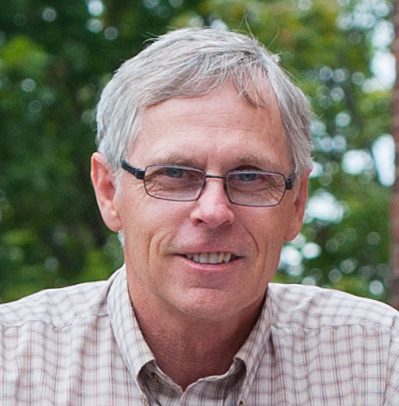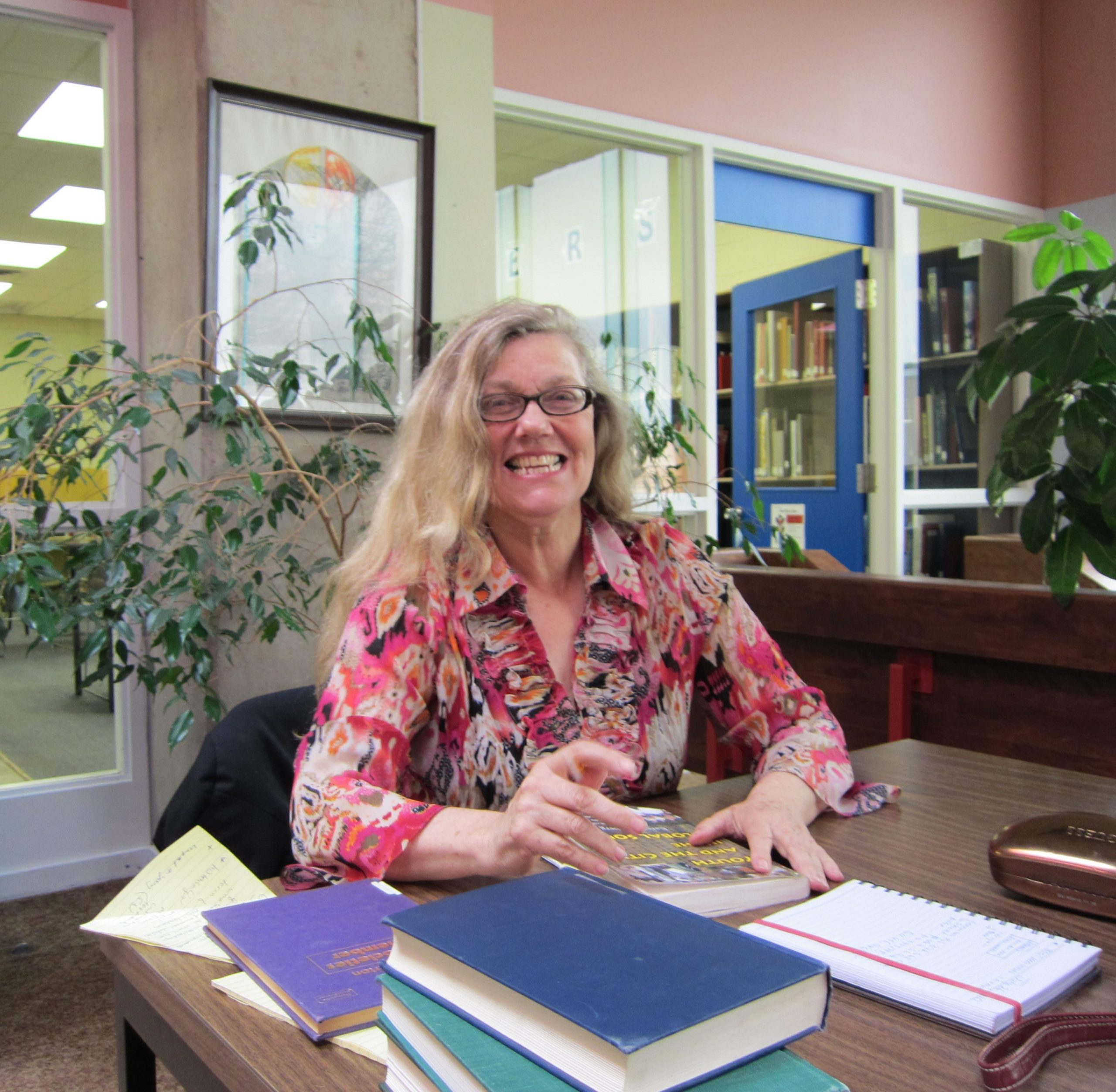Institute of Island Studies | Executive Committee
The Institute of Island Studies Executive Committee is a mix of individuals from both the University of Prince Edward Island and the community. They are committed to the study of island issues and topics and the skill sets that are directly relevant to enhance the operational effectiveness and long-term vision of the Institute. Excluding ex-officio and student members, appointments are normally for three-year terms, renewable once.
Members of the IIS Executive Committee include:
Dr. Laurie Brinklow
Chair of the Executive Committee
Dr. Laurie Brinklow is the Chair of the IIS Executive Committee, Co-ordinator of the UNESCO Chair in Island Studies and Sustainability, and Interim Co-ordinator of the Master of Arts in Island Studies (MAIS) program and the undergraduate Island Studies minor at UPEI.
View profile

Dr. Marva Sweeney-Nixon
Dr. Marva Sweeney-Nixon is Associate Vice-President of Research and the Dean of Graduate Studies at UPEI. Dr. Sweeney-Nixon joined UPEI in 1997 and is currently a Professor of Biology. She served as Department Chair of Biology from 2012 to 2019.
Her research interests include cardiovascular and neurodegenerative diseases, antioxidants, and diabetes, including over 50 journal articles and book chapters in these fields, with over $1.8 million of research funding. Dr. Sweeney-Nixon has contributed to the supervision of eight MSc students and seven Research Assistants and has served on numerous other MSc and PhD supervisory committees.

Kathleen Brennan
Kathleen is a Senior Advisor on Strategic Initiatives with the Climate Action Secretariat in the provincial government. She holds a Master of Public Health Science from the University of Toronto, Faculty of Medicine, undergraduate degrees from St. Francis Xavier University in both Biology and Human Nutrition, and is a Registered Dietitian. As a civil servant for over a decade, Ms. Brennan has practical experience and strong aptitudes in the area of government relations and a solid appreciation for the complexities of building public policies while working in collaborative, multi‐sectoral environments. An Islander-by-choice since 2008, she is passionate about creating healthy communities, food security, and climate change. She currently also serves on committees with the Town of Stratford and is a Council Member of the College of Dietitians of PEI.

Dr. Ryan Gibson
Ryan is an Associate Professor and Libro Professor of Regional Economic Development at the University of Guelph. He is the past president of the Canadian Community Economic Development Network and the Canadian Rural Revitalization Foundation. He was Program Committee Chair for the NAF 2015 Steering Committee. Ryan serves as the Chair of the Institute’s Advisory Committee. Ryan’s research focuses on rural planning, governance, community economic development, immigration, and workforce development.
Learn more
Dr. Helen Kristmanson
Dr. Helen Kristmanson is Pituamkek Project Manager at L’nuey. Her association with Pituamkek, also known as Hog Island and the Sandhills, began in 2006 when she participated in a multi-disciplinary field survey organized by the Mi’kmaq Confederacy of PEI. Out of this trip was born an enduring partnership dedicated to the documentation and preservation of Epekwitnewaq Mi’kmaq heritage at Pituamkek and across the Island. Today, as Project Manager, she is part of a collaborative team working towards the establishment of a national park reserve at Pituamkek. Helen has published various academic and popular articles on archaeology and history. She serves as graduate and adjunct faculty at the University of Prince Edward Island where she has taught undergraduate and graduate courses in the Department of Sociology and Anthropology and the Institute of Island Studies. Recent courses include Communications Management and Island Issues and Introduction to Archaeology. Helen is President of the Canadian Archaeological Association.

Dr. Edward MacDonald
Ed has had a long association with the Institute of Island Studies. From 1986 to 1997 he was a member of the Institute’s Advisory Board serving as Vice-Chair and then Chair, before becoming the IIS’s first (and only, as it turns out) Research Director in the late 1990s. After joining UPEI’s Department of History in 2000, he chaired the working committee that drafted the proposal for the Master of Arts program in Island Studies and became its first co-ordinator. Since then he’s been a member of various IIS committees, and also sits on the Master of Arts in Island Studies Steering Committee.
Ed’s research focus is the social, cultural, and environmental history of Prince Edward Island, but he likes to place it within a comparative context, regionally, nationally, and in terms of island societies. The best known of his seven books is If You’re Stronghearted: Prince Edward Island in the 20th Century (October 2000). Along with Josh MacFadyen and Irene Novaczek, he is co-editor of Time and a Place, an environmental history of Prince Edward Island, co-published by Island Studies Press and McGill-Queen’s University Press.
In 2020, Ed co-edited (with Claire Campbell and Brian Payne) and contributed to The Greater Gulf: Essays on the Environmental History of the Gulf of St. Lawrence and in 2022, his and Alan MacEachern’s history of tourism on Prince Edward Island, The Summer Trade, appeared.
Dr. Joshua MacFadyen
Dr. Joshua MacFadyen is Associate Professor and Canada Research Chair in Geospatial Humanities at the University of Prince Edward Island. His research focuses on energy transitions in Canada, and he leads the GeoREACH lab at UPEI which supports Geospatial Research in Atlantic Canadian History. He teaches courses on digital humanities and leadership in the Applied Communication, Leadership, and Culture program in the Faculty of Arts at UPEI. His most recent book, Flax Americana: A History of the Fibre and Oil that Covered a Continent (McGill-Queens University Press, 2018), was a finalist for the Governor General’s History Award. He also published an edited collection with Edward MacDonald and Irené Novaczek called Time and a Place: An Environmental History of Prince Edward Island (McGill-Queens and Island Studies Press, 2016). He is co-editor of the international journal Historical Methods: A Journal of Quantitative and Interdisciplinary History.

Dr. Jean Mitchell
Jean Mitchell is an associate professor of Anthropology and UNESCO Chair in Island Studies and Sustainability at UPEI. In the role of UNESCO Chair in Island Studies and Sustainability, Dr. Mitchell will take a broad perspective on small islands’ sustainability across the intersecting socio-economic, cultural, aesthetic, and environmental domains. She has been working in Vanuatu for over 20 years and has also conducted research in Kiribati and Solomon Islands. In Vanuatu, she started the Young People’s Project at the Vanuatu Cultural Centre. Her research interests include post-colonialism, youth, gender, health, migration, and the environment. She has, together with Vanuatu Cultural Centre, been working on a project on local knowledge, youth, and the ecologies of gardens in Tanna and Erromango. Over the past year she has researched the effects of extreme weather and climate change in southern Vanuatu. She has also edited and co-edited several volumes of essays on L.M. Montgomery and has been researching the Presbyterian Missionary history that connects Vanuatu and Prince Edward Island.

Dr. Carolyn Peach Brown
Originally from Cape Breton Island, Nova Scotia, Carolyn is an Associate Professor and Director of Environmental Studies at the University of Prince Edward Island. Prior to doing her PhD in Natural Resource Policy and Management at Cornell University, she worked for over 10 years in Central Africa at the grassroots level in community development. Carolyn’s research focuses on environmental governance for management of commons resources, and how such strategies can contribute to the goals of sustainable resource management and improved livelihoods. In particular, she explores the role played by communities and civil society groups in multi-level governance, in the context of changing policy and a changing climate.

Dr. Michael van den Heuvel
Mike is UPEI’s Canada Research Chair in Watershed Ecological Integrity and a member of the Biology and Biomedical Sciences Departments. He studies the effects of agriculture and chemical use on freshwater and coastal environments, with a focus on the endocrine responses, immunotoxicology, and population health of fish. He is the principal investigator of a three-year research project funded by the Natural Sciences and Engineering Research Council of Canada (NSERC) to examine the potential impact of agricultural pesticide run-off on lobsters in the Northumberland Strait. He is also director of the Canadian Rivers Institute, and is working to develop methods and solutions to best monitor environmental problems and better protect rivers in Prince Edward Island.
RETURN TO IIS GOVERNANCE OVERVIEW




